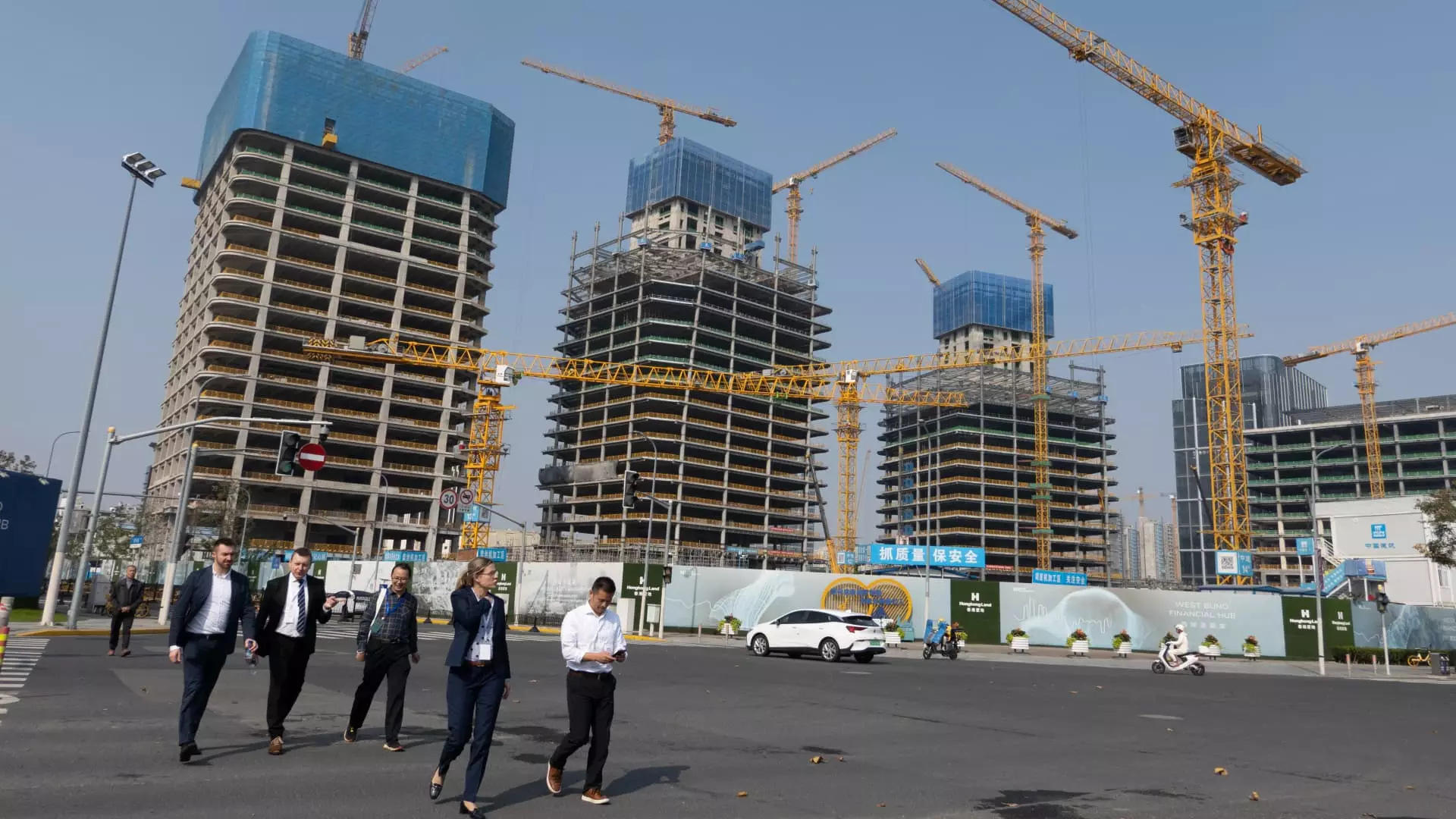As China’s parliament prepares to conclude its five-day meeting, expectations are high for a series of new economic stimulus initiatives. Since late September, the Chinese government has been actively increasing its stimulus measures, aimed at reviving the nation’s ailing economy and stabilizing financial markets. The stock market has responded positively to this influx of announcements, suggesting that investors are optimistic about the prospects for economic recovery. The urgency of this situation is underscored by the leadership of President Xi Jinping, who recently convened a significant meeting to reinforce the necessity for enhanced fiscal and monetary support in combating the ongoing downturn in the real estate sector.
Government Debt and Its Implications
The National People’s Congress (NPC) plays a crucial role in approving significant fiscal expansions, such as increases in government debt and spending. During this parliamentary session, discussions have centered around elevating the ceiling on local government debt issuance, a step previously seen in October of last year when the deficit target was raised to 3.8%. Such measures are often tricky, reflecting a delicate balance – ideally boosting local initiatives while preventing the escalation of existing debt burdens. While some analysts speculate on a substantial increase in fiscal support following the recent U.S. elections, caution remains prevalent. There is a palpable concern that the government may opt for restraint, particularly in directly supporting consumers during this turbulent period.
The challenge of hidden debt among local governments cannot be overstated. Recent estimates suggest that this off-the-books borrowing could range from 50 trillion to 60 trillion yuan ($7 trillion to $8.4 trillion). Beijing’s plans to allow local authorities to increase their debt issuance by 10 trillion yuan could alleviate some financial pressures. Nomura forecasts this could lead to substantial savings of around 300 billion yuan in annual interest payments for local governments. However, the question remains whether these measures will effectively translate into tangible economic benefits, especially given the imperative to address ongoing local government debt challenges, underscored by Finance Minister Lan Fo’an’s comments emphasizing the importance of resolving these financial issues prior to implementing extensive stimulus measures.
Central to the economic discussion is the ongoing slump in the real estate market, a critical revenue source for local governments. As property sales decline, regional authorities are feeling the impact on their finances, exacerbated further by expenditures incurred during the COVID-19 pandemic. The decrease in real estate activity translates to reduced funds for local public services and infrastructure projects, creating an additional layer of complexity for policymakers. Thus, any forthcoming stimulus not only aims to stabilize the economy but also seeks to rejuvenate the real estate sector, which has historically bolstered government revenue streams.
While the prospects for an economic stimulus package seem promising, the path ahead is fraught with challenges. The interplay between stimulating the economy and managing local government debt poses a nuanced dilemma for Chinese legislators. As the government seeks to energize the economy, it must also tread carefully to ensure that the measures taken today do not lead to greater economic turmoil in the future. The next few days are critical as the government articulates its strategy moving forward—a balance that will ultimately shape China’s economic landscape for months to come.


Leave a Reply